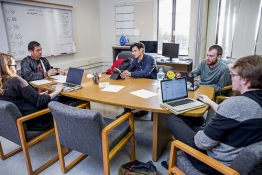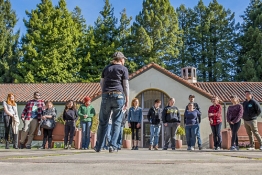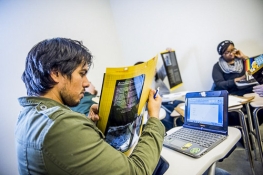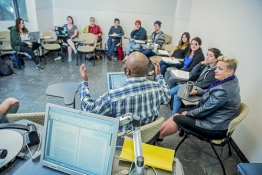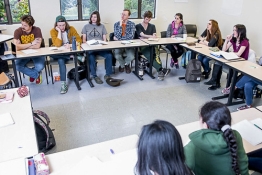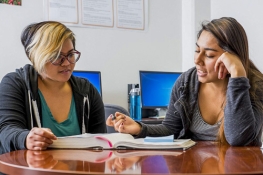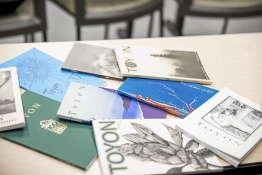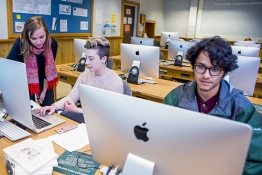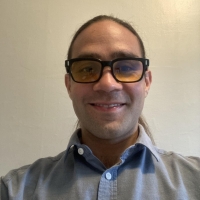
Cristian Martinez
Year Graduated:
2020
Scholar
Job description
I'm a creative nonfiction writer completing a Master's of Science in Narrative Medicine.
Why did you choose this program?
An elder once told me that the most difficult path in life is our destiny. English writing practices have always challenged me throughout my life. Therefore, I knew that the English discipline would provide opportunities to obtain my dream of writing about mine and my family's truths, and showing our marginalized sisters and brothers how they can do the same about lived experiences within oppressive systems.
How did this program prepare you for your job?
This program, especially the faculty and my colleagues, supported every writing process along my way through English studies. These processes were not the easiest to confront. However, with Humboldt's environmental and social justice focus, alongside the culture houses throughout campus, my writing within these classrooms sprouted my intellectual growth to heights I could not have imagined before joining the program. Then, one day, while we were interpreting Viramontes' "Under the Feet of Jesus", Professor Creadon mentioned how the Narrative Medicine program at Columbia University facilitates workshops similar to the one we were experiencing in this class session—I knew it was for me. I took a long shot, applied, and with a few letters of recommendation from faculty, I got into the Narrative Medicine Master's program at Columbia University.
What did you enjoy most about the program?
The most enjoyable moments from this program were collaborating with my colleagues during our interpretation of novels, short stories, poems, and films! What added to these wonderful intellectual experiences was the opportunity to attend office hours and do the same with our English department faculty. Never in my life have I experienced such attentive and mindful professors that took time to work with students on what they wanted to write, rather than what the academic institution wanted students' outcomes to be. Sitting down and discussing decolonial and Latin American cultural perspectives with Professors Delgado, Adsit, Creadon, Sullivan, and Ahokas were some of the most enjoyable times during my English academic journey at HSU.
What would you say to prospective students who are thinking about applying to this program?
I think any student who has a dream to be listened to, and show the world another perspective of how we can live more justly, live more empathically, live more communally, either through writing, painting, podcasting, website creations, ethnographic researching, and any other art form—the English department faculty has it all down to a science, and they will encourage all the creativity you bring into this space at Humboldt. The world needs more of our marginalized voices to be heard, and our sisters and brothers are waiting for us to acknowledge their lived experiences—and be inspired to do the same!

